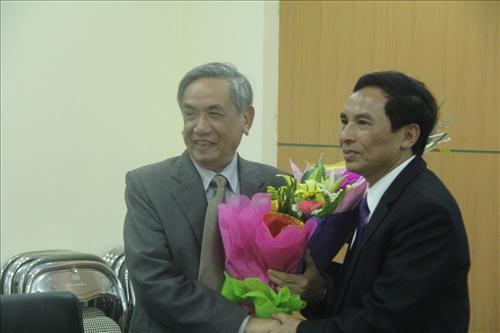
The auditorium on the 3rd floor of building E, with nearly 200 seats, was packed with teachers and students from the Linguistics, Literature, and Vietnamese Studies departments. Notably, the seminar was also attended by the veteran teacher and senior history professor Vu Duong Ninh, Professor Pham Quang Minh, the school's Rector, along with representatives from the heads of the Literature, Linguistics, History, and Philosophy departments, the school's Veterans Association, and numerous central and Hanoi-based media outlets.
Opening the seminar, Professor Pham Quang Minh expressed his gratitude to the author Huu Dat, the author of the epic poem, and all the teachers, speakers, and especially the student audience, who, according to the Rector, played a particularly important role. He stated that similar events like this seminar would significantly contribute to fostering ideals in generations of students, the future leaders of the country, enabling them to fully and deeply understand the glorious history of the nation.
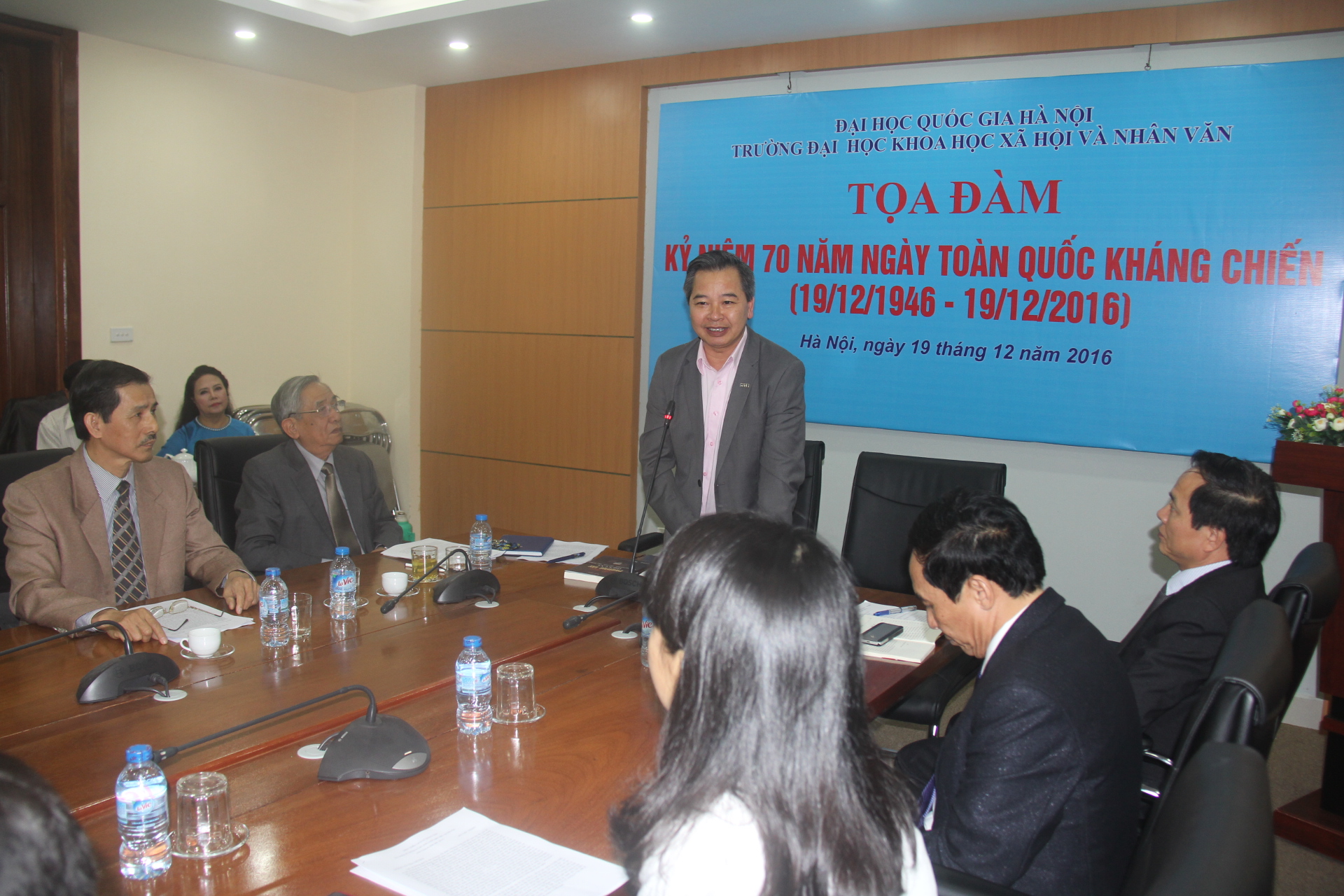
Professor Pham Quang Minh (Rector of the University of Social Sciences and Humanities) speaking at the seminar.
Sharing stories about the formation process of this epic historical poem.The Ten Thousand Day WarPoet and educator Huu Dat revealed that his inspiration comes from the glorious history of the nation. His generation was born and raised during two wars, and the losses, suffering, and indomitable courage of the Vietnamese people deeply moved him, prompting him to write. As a poet and also an educator, he expressed his gratitude to the generations of his forefathers, those who achieved great victories and played a crucial role in driving out the two great imperial powers, France and the United States.The Ten Thousand Day WarThe book is structured into 12 chapters, beginning with "Autumn Aspirations" (Chapter 1), through "National Resistance Day" (Chapter 2), "Dien Bien Forever" (Chapter 3), "When We Grow Up" (Chapter 4), "The Historical Confrontation" (Chapter 5), "The Mothers" (Chapter 6), "The University" (Chapter 7), "The Villages" (Chapter 8), "The Last Battle" (Chapter 9), "The Country's Transformation" (Chapter 10), "The Challenge" (Chapter 11), and finally, the chapter titled "Our Generation" (Chapter 12).
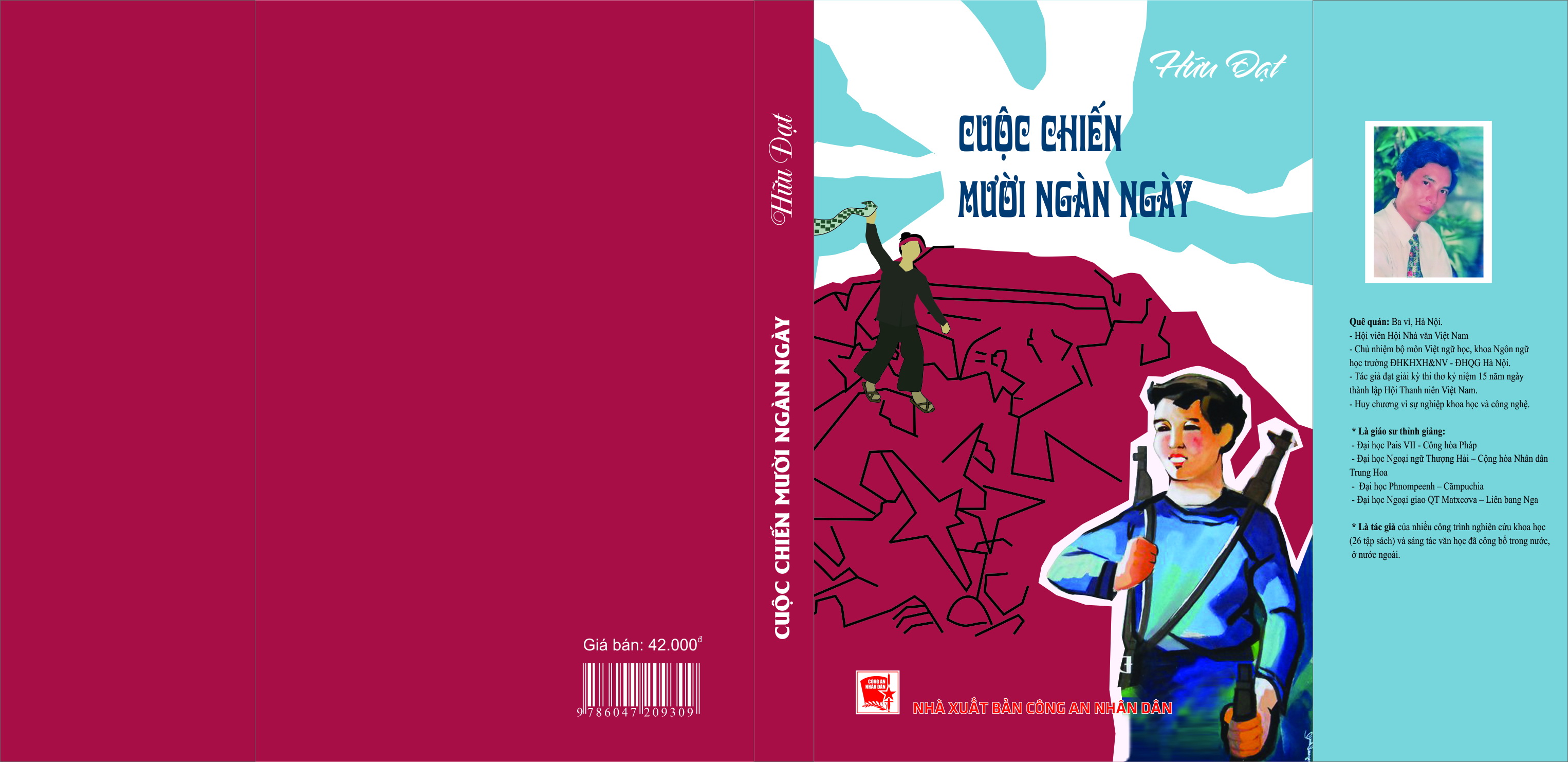
Speakers participating in the seminar, representing scientists from the Departments of Literature, History, and Linguistics, focused on discussing the successes in both the content and form of the epic poem. Professor of History Vu Duong Ninh argued that there is no better way to convey historical lessons through captivating and memorable verses than in Huu Dat's epic poem. Lecturer Tran Hinh focused on analyzing the formal successes of the epic poem through its structure and the author's figurative poetic style. Sharing this idea, Associate Professor Nguyen Xuan Hoa added that the system of imagery in the epic poem symbolizes long-standing traditional culture. From this system of symbols, the poet wants to convey that the victory of the Vietnamese nation is the victory of national culture over colonial culture and American-style pragmatic culture. This is the depth in Huu Dat's figurative poetry. Associate Professor Pham Thanh Hung related it to visual poetry in England and affirmed that the visual poems in the epic poem...The Ten Thousand Day WarHuu Dat's work was meticulously written, a significant achievement for the author. Professor Bui Viet Thang emphasized his fondness for Huu Dat's intimate, whispered tone and his affectionate verses. Associate Professor Pham Quang Long didn't directly address the epic poem, but instead shared interesting stories from diplomatic trips with some Americans about how both sides understood each other's war, highlighting the contributions of literature about war. A speaker representing the students, young people still in school, not only expressed their appreciation for the epic's appeal but also shared the emotions of today's generation regarding the glorious history of the nation as expressed in Huu Dat's poems.
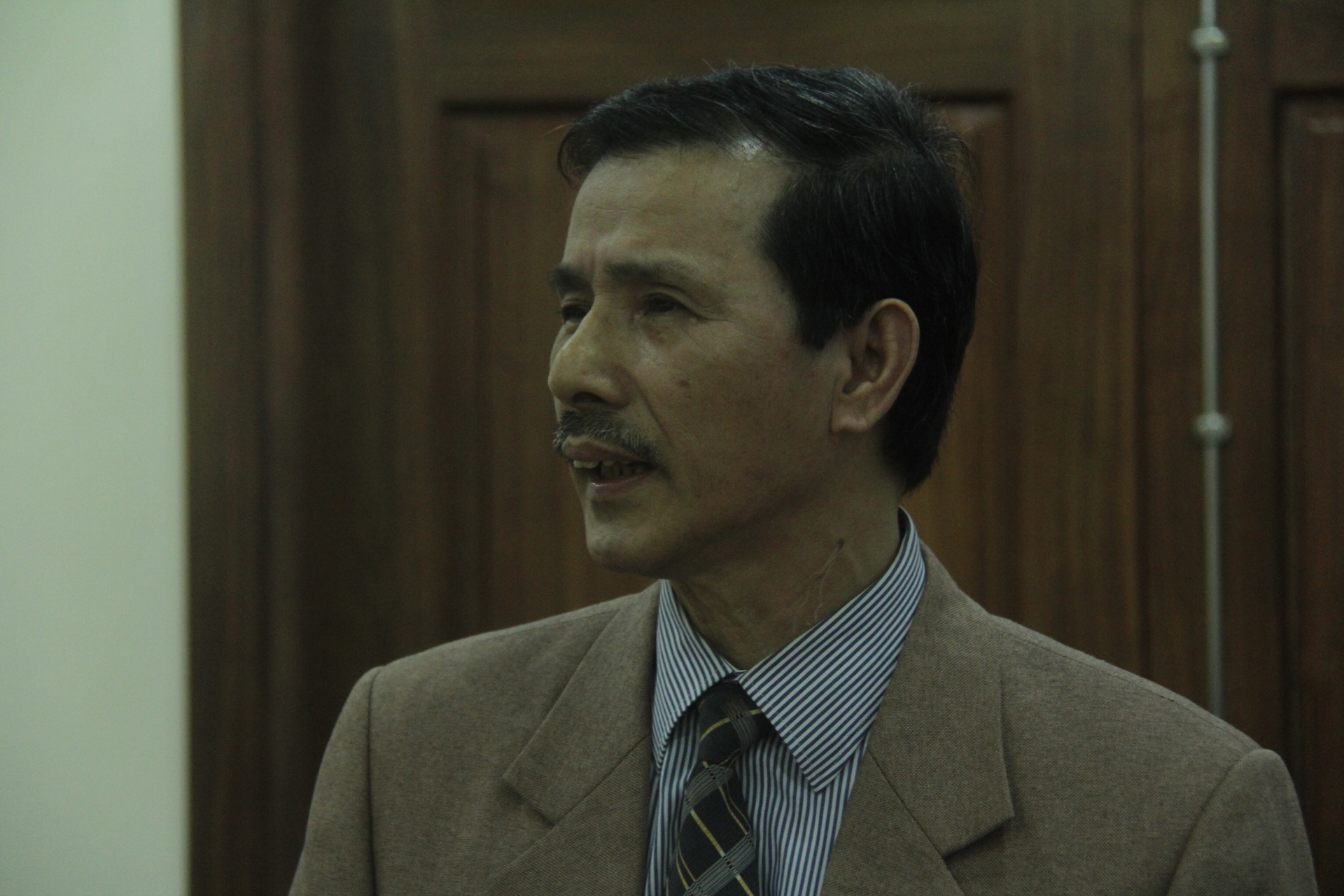
Teacher Bui Viet Thang commented on the poem by Dr. Nguyen Huu Dat.
Dr. Nguyen Quang Lieu, Head of the Political and Student Affairs Department and also a veteran, affirmed that although he doesn't have extensive knowledge of epic poetry, reading and listening to the opinions expressed at the seminar helped him deeply understand the heart and talent of the writer. As the person in charge of political and student affairs, and directly responsible for organizing this seminar, he reiterated that this is a very useful activity for the Hanoi University of Social Sciences and Humanities.

Dr. Nguyen Quang Lieu's comments on the epic poem "The 10,000-Day War"
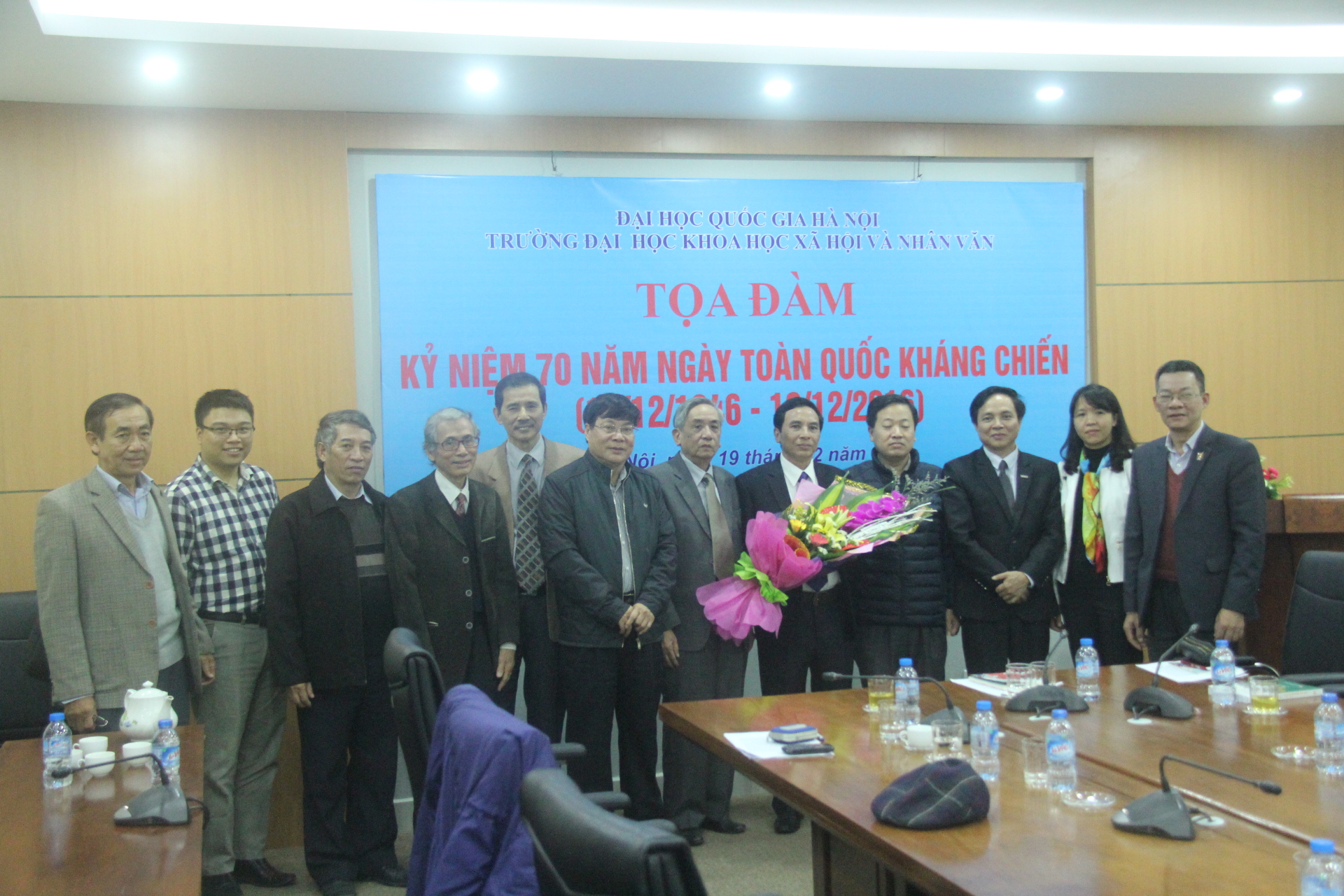
The delegates attending the seminar took a commemorative photo with Dr. Nguyen Huu Dat.
Author:Tran Hinh
Newer news
Older news